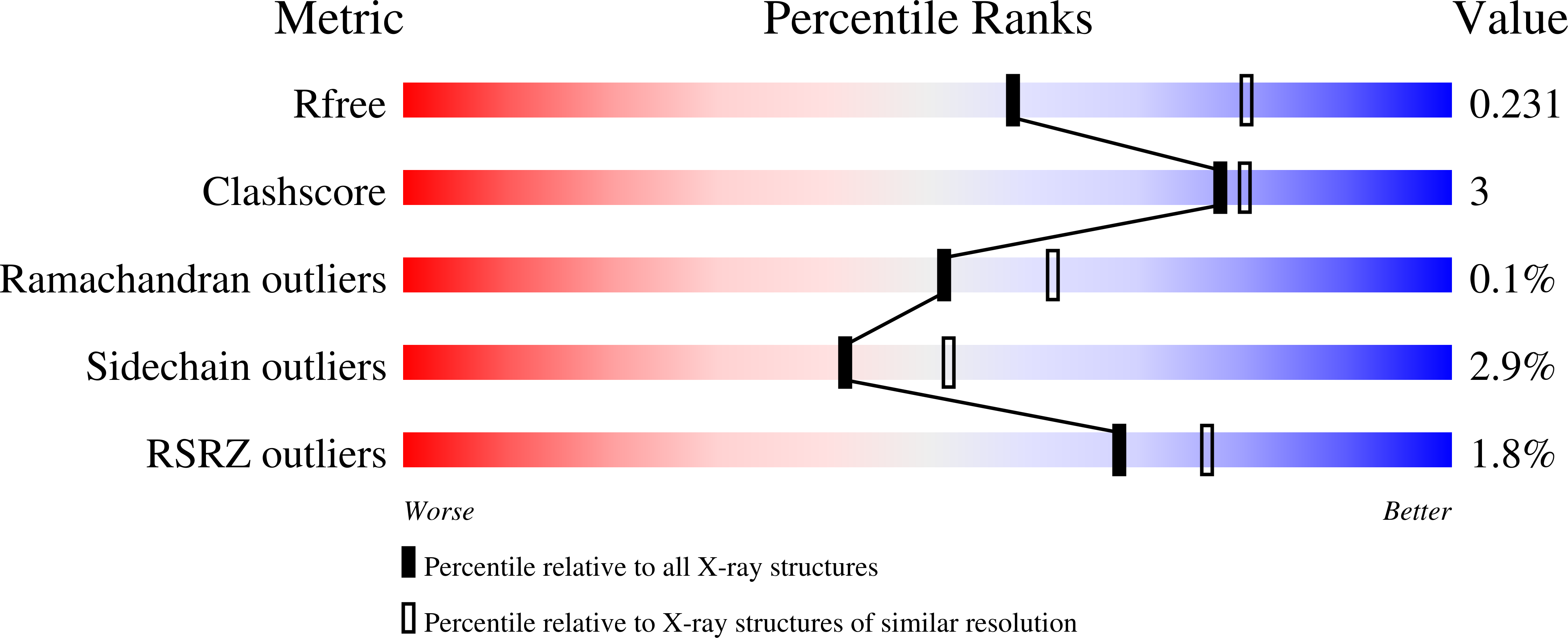A potent SARS-CoV-2 neutralising nanobody shows therapeutic efficacy in the Syrian golden hamster model of COVID-19.
Huo, J., Mikolajek, H., Le Bas, A., Clark, J.J., Sharma, P., Kipar, A., Dormon, J., Norman, C., Weckener, M., Clare, D.K., Harrison, P.J., Tree, J.A., Buttigieg, K.R., Salguero, F.J., Watson, R., Knott, D., Carnell, O., Ngabo, D., Elmore, M.J., Fotheringham, S., Harding, A., Moynie, L., Ward, P.N., Dumoux, M., Prince, T., Hall, Y., Hiscox, J.A., Owen, A., James, W., Carroll, M.W., Stewart, J.P., Naismith, J.H., Owens, R.J.(2021) Nat Commun 12: 5469-5469
- PubMed: 34552091
- DOI: https://doi.org/10.1038/s41467-021-25480-z
- Primary Citation of Related Structures:
7OAN, 7OAO, 7OAP, 7OAQ, 7OAU, 7OAY - PubMed Abstract:
SARS-CoV-2 remains a global threat to human health particularly as escape mutants emerge. There is an unmet need for effective treatments against COVID-19 for which neutralizing single domain antibodies (nanobodies) have significant potential. Their small size and stability mean that nanobodies are compatible with respiratory administration. We report four nanobodies (C5, H3, C1, F2) engineered as homotrimers with pmolar affinity for the receptor binding domain (RBD) of the SARS-CoV-2 spike protein. Crystal structures show C5 and H3 overlap the ACE2 epitope, whilst C1 and F2 bind to a different epitope. Cryo Electron Microscopy shows C5 binding results in an all down arrangement of the Spike protein. C1, H3 and C5 all neutralize the Victoria strain, and the highly transmissible Alpha (B.1.1.7 first identified in Kent, UK) strain and C1 also neutralizes the Beta (B.1.35, first identified in South Africa). Administration of C5-trimer via the respiratory route showed potent therapeutic efficacy in the Syrian hamster model of COVID-19 and separately, effective prophylaxis. The molecule was similarly potent by intraperitoneal injection.
Organizational Affiliation:
Structural Biology, The Rosalind Franklin Institute, Harwell Science Campus, Didcot, UK.
















